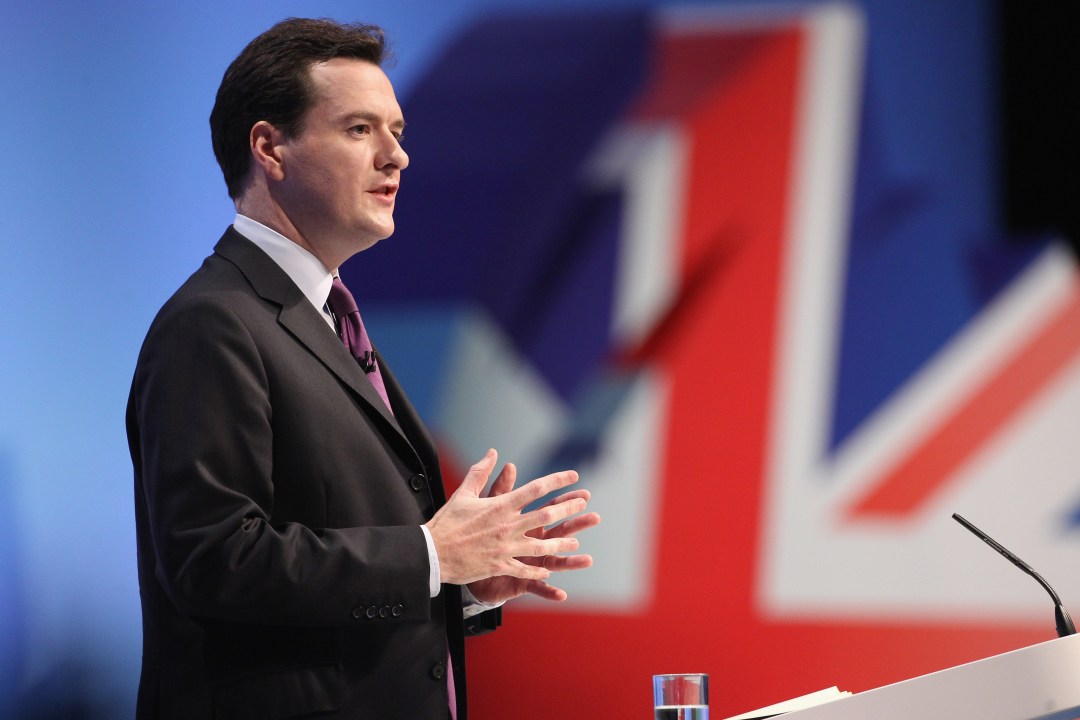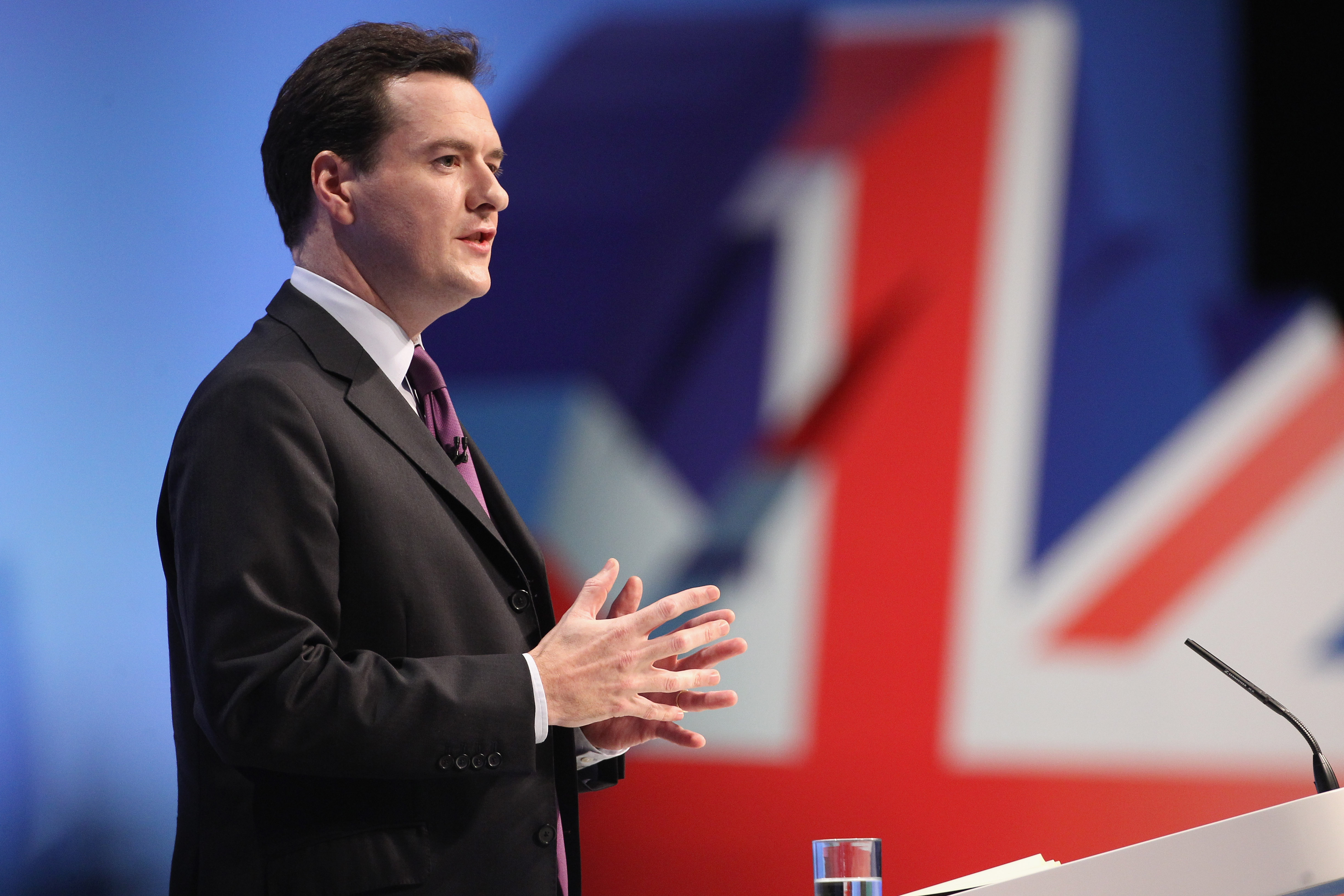Edinburgh
It became clear last night why George Osborne was put in charge of the Coalition Government’s fightback against Alex Salmond and separatism: he is the only one who has the ability to really score points off the Nats. The Chancellor’s intervention on currency and bank notes – suggesting that an independent Scotland might not be able to keep the pound and that, if it did, it might be banned from producing Scottish bank notes – hit the SNP hard.
Osborne’s remarks shook one of those comfortable certainties which the SNP has been peddling for so long – that Scotland would simply keep sterling after independence and everything would progress as normal. The key point here is that the SNP has been allowed to get away with arguing its case on a whole range of issues without so much as a query from Westminster for so long that it has managed to convert assumptions into fact. Salmond has claimed so often that Scotland will simply keep the pound and not been challenged over it that it has almost morphed into accepted reality.
There are other examples too: Scotland would get 99 per cent of North Sea oil reserves, Scotland would get its population share of defence assets, of diplomatic missions and embassies, Scotland would become an independent member state of the EU, there wouldn’t be border guards on Hadrian’s Wall. What Osborne has done is seize on just one of these assertions – one that he has the authority to talk about – and undermine it. What is going to happen over the next few months is that the UK Government will focus on some of the others and, by questioning the supposed certainties of independence, they hope to erode the foundations on which Salmond’s whole argument is based.
For unionists, it will be a relief that the UK Government is fighting back at last (although this will be mixed with exasperation that it hasn’t happened sooner) and it suggests we are all going to have to get used to hypothetical and intricate discussions about the future shape of a separated United Kingdom for some time to come.
But this strategy does not come without its dangers. John Swinney, Scotland’s Finance Secretary, insisted last night in response to Osborne that every time a UK Tory minister interfered in the debate it generates more support for the independence cause. That may be true – but only up to a point. There will be Scots who will get angered by what they see as a Tory Chancellor sticking his well-bred nose into Scottish affairs and who might switch to the independence cause, but there may well be others who will listen to Osborne’s words and worry that maybe he’s right.
What seems certain, though, is that both sides are going to have to get used to squaring up in public and talking politely in private. Both sides have indicated they are prepared to reach a settlement over the referendum: it seems likely that the UK Government will allow Salmond to hold it in the autumn of 2014, and that Salmond will drop his opposition to the Electoral Commission’s involvement and his desire to extend the franchise to 16 and 17 year olds. What remains unresolved is the issue of devo max and the wording of the referendum question itself, and both of these depend on the unionist parties getting their act together and working out what it is they want.
But something much more significant has happened this week than just the first spats over the referendum: the ground on which the UK stands really has shifted – forever. George Kerevan, a Nationalist commentator, today claims that the sun is now setting on the UK, that Scotland has started a process which will see devo max – at the very least – implemented, that Northern Ireland is going the same way and Wales will follow. His assessment is optimistic from a nationalist perspective, but he is right on the core issue. There really is no going back now.
The fact that the Chancellor is discussing whether or not Scottish banks will be able to print their own sterling notes in a few years time, that there are going to be detailed discussions over the ground rules for a referendum on independence and that the Prime Minister is worried (really worried) about losing a part of the UK shows how far we have come since the devolution settlement – which was then described as ‘the settled will of the Scottish people’. The argument has moved on to the stage where Scottish independence has become a mainstream opinion, it is the subject of inter-governmental discussions and it will become the focus of UK domestic politics for the next two years at least and (if the Nats lose the referendum) probably for decades after that too.
Having covered every step of the Scotland Act when it was going through the Commons 14 years ago, I can’t help remembering the hoots of derision which greeted Tam Dalyell every time he rose to warn about the dangers of devolution. ‘A motorway with no exits to independence’, he cried while Labour members waved their order papers and told him to shut up.
Well, who’s right now?







Comments